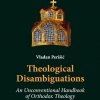Veljko Nenadić, 16-godišnji kompozitor i pijanista iz Smedereva, treći put zaredom pobedio je na takmičenju „Golden Key Piano“ u Americi, ovoga puta sa kompozicijom za duduk, frulu i klavir "Istočni vetar", koju je napisao za školsku drugaricu Nedu Nikolić, najboljeg mladog frulaša u Srbiji.
Veljko je pobedio u konkurenciji do 18 godina, poslavši partiture i video-zapis "Istočnog vetra".
- Žiri nije krio zadovoljstvo predivnom melodijom i harmonijama inspirisanim tradicionalnim srpskim foklorom, koji su utkani u ovu izuzetnu kompoziciju, a takođe i virtuoznom interpretacijom na duduku i fruli Nede Nikolić - kaže Romana Repustić Nikolić, razredni starešina mladih muzičara, učenika drugog razreda srednje muzičke škole "Kosta Manojlović" iz Smedereva.
.Na istom takmičenju, Veljko je osvojio i treću nagradu za klavirsku kompoziciju "Završne minijature". Ovakav uspeh do sada niko nije ostvario na takmičenju koje postoji od 2002. godine, i na kome je učestvovalo 69 takmičara iz 16 zemalja sveta sa pet kontinenata.
Dodela nagrada za kompozitore je 22. jula u Beču, kada se održava završna manifestacija ovog takmičenja u čuvenoj dvorani Erbar hol, gde su nekada nastupali Brams i Maler, i gde će Veljko i Neda odsvirati "Istočni vetar" i primiti nagrade.
Novosti, 8. 1. 2015.




